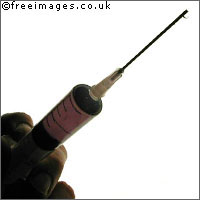Developing countries ask for help with research ethics capacity-building
Ministers and scientists from developing countries asked for help from the European Union in developing their approach to research ethics at a conference in Brussels on 15 May. Speakers emphasised the need for assistance in capacity-building, training, and ultimately the drafting of guidelines. In response, EU Science and Research Commissioner Janez Potocnik emphasised the EU's strong research collaboration with partner countries, and said that it would get even stronger in the Seventh Framework Programme (FP7). He also noted the EU's experience of assisting with capacity-building, particularly in the context of helping candidate countries to prepare for accession to the EU. Underlining his country's own scientific progress, Togo's Minister of Health Charles Kondi Agba described how the 10th birthday of the first Togolese test-tube baby was celebrated recently. 'Some people were stupefied that this research is going on in Togo,' said Mr Agba. Within Togo, discussions are currently taking place on the shelf life of embryos, and on a new law on reproduction. 'Ethics has now gone to the streets. It's no longer the property of universities alone,' said the minister. Togo has a new Commission on Bioethics, which Mr Agba said demonstrates the wish of the Togolese to examine the impacts of scientific research. 'But we need a lot of training, and we ask for cooperation in our own efforts to protect the human being,' he told the conference. Albert Ondo Ossa, Minister for Education and Research in Gabon, also emphasised his country's desire for more multilateral contacts. Recognising the vulnerability of Gabon to exploitation, the Government decided to create an overall framework for research, and in this context has established a national ethics committee. Mr Ossa is hoping that the committee can provide guidelines on dealing with issues such as the vulnerability of African researchers when offered large funding envelopes from overseas, and the need to protect the country's indigenous species - in the past researchers have been able to remove samples from Gabon without checks, so nobody knows exactly what has been taken. The EU has provided €50,000 to Gabon for a three-year training programme for the members of the new ethics committee, but more assistance is still needed. 'There are so many priorities in a country such as ours [...] so we have to look outside for funds,' said Mr Ossa. A third call for assistance with capacity-building came from Ariel Henry, a member of the cabinet of the Minister of Public Health and Population in Haiti. The need will not be met with money alone however; being able to build new capacity is dependent upon society recognising the importance of having such structures in place, Mr Henry added. Giving an overview of research ethics in India, Kanikaram Satyanarayana from the Council of Medical Research spoke of the various guidelines and mechanisms that are already in place. But with the costs of clinical trials between 40% and 60% lower in India than in northern countries, India is a magnet for such research, and unethical trials have been detected. India therefore needs more rigorous monitoring, guidelines on emerging technologies, and support for capacity-building, said Dr Satyanarayana. Janez Potocnik sought to reassure speakers from the developing countries that the EU has a strong commitment to capacity-building, as well as experience gained when helping the candidate countries to prepare for EU accession. 'There is no book of correct answers for everybody, but we can learn from each other,' he told his audience. Europe has its own ethical issues, and mechanisms in place to ensure that research approved for funding meets ethical criteria. In 2006, 10% of research proposals for the Sixth Framework Programme (FP6) undergoing ethical reviews raised serious ethical and social issues, sometimes linked to the specific context of partner countries. And 15% of research proposals raised the complex issue of involving healthy adult volunteers in clinical trials, said Mr Potocnik. The Commission suggested that EU initiatives such as its Code of Conduct on Responsible Research and Development of Nanotechnology could act as a catalyst for international discussion. 'I see this as a good example of the role Europe has to play in research ethics. It can offer examples, enter into international dialogue and partnerships, and build up a picture - together with partner countries - of how sensitive issues in research can be handled,' said the Commissioner. But Mr Potocnik conceded that dialogue alone is not enough. Ethical issues cannot be tackled without human resources and coordination. Money from FP7 will therefore be used to support capacity-building in three specific areas, he explained: it will fund research projects that could contribute to building capacities in research ethics; it will fund the strengthening of knowledge networks and regional networks; and it will promote international mobility through the Marie Curie schemes. 'These will attract excellent foreign researchers to Europe who, when they return home, will strengthen relations between the scientific communities in their country and Europe,' said Mr Potocnik.
Countries
Gabon, Haiti, India, Togo



